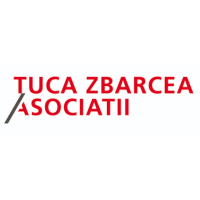

Legal director | cargo-partner Expeditii




Iza Stan
Legal director | cargo-partner Expeditii
How do you approach managing legal aspects during periods of instability or crisis to ensure the organisation’s resilience?
In times of instability or crisis, I rely on 12 years of experience in the fast-paced international logistics and freight forwarding sector to manage legal challenges with adaptability, agility and proactive risk management. This industry is constantly shaped by frequent legislative changes, geopolitical tensions such as conflicts and sanctions, social unrest like strikes in ports or airports, and rapid technological advancements.
My role is to translate complex legal issues, where logistics intertwines with technology and international trade intersects with cross-border regulations, into clear, actionable advice for the business. By conducting thorough risk assessments, I identify regulatory changes, contractual liabilities, emerging threats and opportunities, enabling the organisation to allocate resources efficiently and make informed decisions.
Contractually, I focus on securing fair and flexible provisions that protect business relationship and allow for operational adjustments in response to market volatility. Key clauses include delivery terms, quality standards, indemnities, dispute resolution mechanism, force majeure, hardship clauses, and particularly limiting liability clauses to reasonable cap exposure, based on the organisation’s fault.
In addition, I emphasise compliance with evolving regulations, maintain clear documentation of decisions, and foster agile communication across teams to ensure resilience and continuity. I also work closely with relevant teams to update internal policies and business continuity plans, ensuring the organisation is prepared to respond swiftly and effectively to unforeseen challenges while maintaining operational resilience. This approach balances risk and responsibility, supporting the organisation to adapt quickly while safeguarding its legal and operational interests.
What are the most significant cases, projects and/or transactions that you and/or your legal team have recently been involved in?
Over the past couple of years, legal team and I have been involved in a significant acquisition, where cargo-partner Group was acquired by the Japanese holding Nippon Express. Following an extensive due diligence process, the two organisations planned not only to integrate synergies and unify shareholder structures but also to consolidate their representation and offices across the countries in which they operate.
As part of this complex and confidential project, my team, together with an extended group of auditors and external counsels facilitated the transition of the Romanian office. This transition involved merging two existing entities into a single operational unit, which included not only clients and business operations but also employees, brand identity, and other relevant social and tax matters, aligning with the broader integration strategy and local legal environment.
Due to the sensitive nature of this project details remain confidential and will only be publicly disclosed after January 15, 2026.
Based on your experiences in the past year, are there any trends in the legal or business world that you are keeping an eye on that you think other in-house lawyers should be mindful of?
Based on my experience over the past year, there are key trends that in-house legal professionals should closely monitor.
First, there is increasing regulatory scrutiny, particularly from Romanian Tax Authority, which introduced sector specific legislation. Following the implementation of RO e-Transport, a real time electronic monitoring platform for tracking the movement of excise goods and RO e-Factura, the national electronic invoicing system, 2025 marked the beginning of more rigorous inspections by the Tax Authority. Enforcement has intensified, with stricter controls on electronic reporting and enhanced anti-fraud measures related to excise taxes and customs regimes.
One of the most impactful developments was the fiscal reform introduced by Law no. 141/2025, affecting both individuals and legal entities. Key changes include higher taxes on dividends, credit institutions, and VAT, increased excise duties, and the elimination of certain tax exemptions, which create new compliance obligations for businesses. In parallel, administrative reforms within the Tax Authority aim to strengthen enforcement, including digitalisation, integrity testing, and performance-based audits.
From a legal standpoint, these developments require close monitoring and proactive risk management to ensure compliance. Legal teams must work closely with finance and tax functions to adapt contractual terms, update internal procedures, and maintain business continuity in a stricter regulatory environment.
Second, ongoing supply chain disruptions are being driven by multiple, overlapping pressures. High inflation continues to raise operational costs, while labour shortages in key areas such as transport and warehousing limit capacity and efficiency.
Global uncertainty, including geopolitical tensions, further complicates planning and forecasting. New customs duties and tariff regimes have added complexity and delays in cross-border shipments.
From a legal perspective, my team and I have focused on careful contract management to address increased risks and facilitate negotiations when necessary. We closely monitor compliance with evolving trade regulations and customs laws to ensure smooth operations.
Finally, ESG and legal compliance have become pillars of modern corporate governance. In the logistics and freight-forwarding sector, these considerations are now embedded into strategic decision-making. From carbon emissions and fuel & energy efficiency to labour practices in warehousing, environmental and social standards are no longer optional. Legal team plays a central role in translating ESG commitments into enforceable policies, aligning contracts, procurement and operations with sustainability goals while ensuring compliance with evolving national and EU regulations.
These trends reflect a broader shift in how legal functions are perceived, from compliance gatekeepers to strategic leaders who are actively guiding the business through complexity, driving resilience, and enabling responsible, long-term growth.
AI has been taken seriously as a potentially revolutionary technological change in the legal world for a number of years now. Has it had a meaningful impact in how your legal team works in this time?
AI has become an increasingly integral support tool with our legal operations, particularly in the realms of legislative research and document management. We have successfully implemented an AI-driven platform dedicated to legal research, which has materially alleviated the workload of our team by optimising the process of information retrieval.
While AI proves effective in generating document templates, standardised formats, and succinct summaries that help reduce administrative overhead, its application in substantive legal analysis remains constrained.
Accordingly, I see AI to be a valuable adjunct that enhances operational efficiency in routine and conceptual tasks, while ensuring that critical legal judgements and advisory outputs continue to be grounded in expert human scrutiny and comprehensive review.
Moving forward, my focus is on advancing the digital competencies of our legal team and integrating AI technologies judiciously, cognisant of their current capabilities and inherent limitations, so as to harness their potential as facilitators rather than replacements in the provision of sound and reliable legal counsel.
How does your team contribute to the overall business strategy of the company? Can you share an example of a recent legal-led initiative that had a significant impact?
The legal team is integrally involved in al key company decisions to ensure comprehensive compliance with applicable legal requirements and internal governance procedures. This encompasses the oversight of leasing and surrending warehouse premises, proper registration and deregistration of secondary offices, securing necessary operational permits, as well as the review and termination of lease agreements. Additionally, the team manages contracts pertaining to logistics services and maintains continuous communication with clients concerning the custody of their goods.
Furthermore, in the event of disputes, prior to engaging formal traditional resolution mechanisms such as arbitration or litigation, the Legal team proactively undertakes a pre-litigation phase. During this period, direct engagement with clients is prioritised to explore amicable resolutions, thereby safeguarding business relationships and minimising operational disruptions.
Consequently, rather than executing isolated projects, which do exist in areas such as GDPR Trade Compliance, Contract Management, the legal team acts as a strategic enabler by embedding oversight within the company’s daily operations and long-term strategic planning.
Legal director | cargo-partner